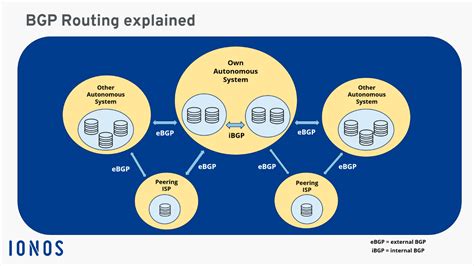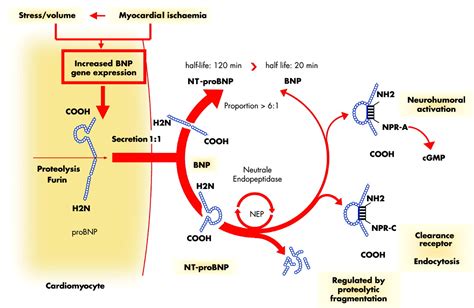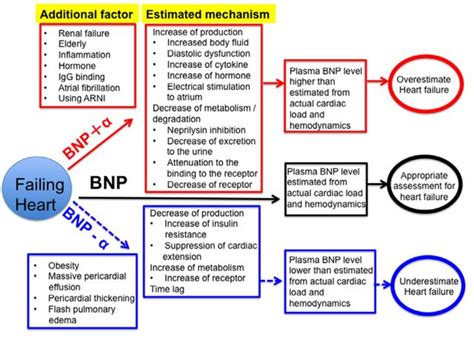Intro
Discover what is BNP, a hormone regulating blood pressure, and its role in heart failure diagnosis, using BNP test and BNP levels to monitor cardiac health, natriuretic peptides, and cardiovascular disease management.
Brain natriuretic peptide, also known as BNP, is a naturally occurring hormone produced by the heart. The primary function of BNP is to regulate blood pressure and fluid balance in the body. It is secreted by the ventricles, which are the lower chambers of the heart, in response to changes in blood pressure and volume. BNP plays a crucial role in maintaining cardiovascular health, and its levels can be used as an indicator of heart failure and other cardiovascular conditions.
The importance of BNP lies in its ability to help diagnose and monitor heart failure, which is a chronic and potentially life-threatening condition. Heart failure occurs when the heart is unable to pump enough blood to meet the body's needs, leading to symptoms such as shortness of breath, fatigue, and swelling in the legs and feet. By measuring BNP levels, healthcare providers can determine the severity of heart failure and develop an effective treatment plan.
BNP has become a valuable tool in the diagnosis and management of heart failure, as it can help identify patients who are at high risk of complications and mortality. Elevated BNP levels are associated with increased morbidity and mortality in patients with heart failure, making it a critical biomarker for healthcare providers. In addition to its diagnostic value, BNP has also been shown to have therapeutic potential, with BNP-like peptides being developed as treatments for heart failure and other cardiovascular conditions.
Introduction to BNP

BNP is a member of the natriuretic peptide family, which also includes atrial natriuretic peptide (ANP) and C-type natriuretic peptide (CNP). These peptides play important roles in regulating cardiovascular and renal function, and their dysregulation has been implicated in various cardiovascular diseases. BNP is the most well-studied of these peptides, and its measurement has become a routine diagnostic test in clinical practice.
The discovery of BNP in the 1980s revolutionized the field of cardiovascular medicine, as it provided a new tool for diagnosing and managing heart failure. Since then, numerous studies have investigated the role of BNP in cardiovascular disease, and its measurement has become a standard practice in clinical cardiology. The development of BNP assays has enabled healthcare providers to measure BNP levels quickly and accurately, allowing for timely diagnosis and treatment of heart failure.
How BNP Works

BNP works by binding to specific receptors in the body, which triggers a cascade of signaling events that ultimately lead to the relaxation of blood vessels and the reduction of blood pressure. This process is mediated by the activation of guanylyl cyclase, an enzyme that converts guanosine triphosphate (GTP) into cyclic guanosine monophosphate (cGMP). cGMP then activates protein kinase G, which phosphorylates and relaxes smooth muscle cells, leading to vasodilation and a decrease in blood pressure.
In addition to its vasodilatory effects, BNP also has natriuretic and diuretic properties, which help to reduce fluid volume and alleviate symptoms of heart failure. The natriuretic effect of BNP is mediated by its ability to increase sodium excretion in the urine, while its diuretic effect is due to its ability to increase water excretion. These effects are critical in reducing the workload on the heart and improving symptoms of heart failure.
Benefits of BNP

The benefits of BNP are numerous, and its measurement has become a valuable tool in the diagnosis and management of heart failure. Some of the key benefits of BNP include:
- Early diagnosis: BNP can help diagnose heart failure at an early stage, when symptoms are mild or absent.
- Prognostic value: Elevated BNP levels are associated with increased morbidity and mortality in patients with heart failure.
- Monitoring treatment: BNP levels can be used to monitor the effectiveness of treatment and adjust therapy as needed.
- Risk stratification: BNP can help identify patients who are at high risk of complications and mortality, allowing for targeted interventions.
- Therapeutic potential: BNP-like peptides are being developed as treatments for heart failure and other cardiovascular conditions.
Overall, BNP is a critical biomarker that has revolutionized the field of cardiovascular medicine. Its measurement has become a routine diagnostic test in clinical practice, and its benefits are numerous. By understanding how BNP works and its benefits, healthcare providers can use this valuable tool to improve patient outcomes and reduce morbidity and mortality.
BNP in Clinical Practice

BNP is widely used in clinical practice to diagnose and manage heart failure. The measurement of BNP levels is typically performed using a blood test, which can be done in a clinical laboratory or at the point of care. The results are usually available within a few hours, allowing healthcare providers to make timely decisions about patient care.
In clinical practice, BNP is used to:
- Diagnose heart failure: Elevated BNP levels can help diagnose heart failure, especially in patients with symptoms such as shortness of breath, fatigue, and swelling.
- Monitor treatment: BNP levels can be used to monitor the effectiveness of treatment and adjust therapy as needed.
- Risk stratification: BNP can help identify patients who are at high risk of complications and mortality, allowing for targeted interventions.
- Guiding therapy: BNP levels can be used to guide therapy, such as the use of diuretics, beta blockers, and ACE inhibitors.
Overall, BNP is a valuable tool in clinical practice, and its measurement has become a routine diagnostic test in the diagnosis and management of heart failure.
Challenges and Limitations

While BNP is a valuable tool in the diagnosis and management of heart failure, there are several challenges and limitations to its use. Some of the key challenges and limitations include:
- Interpretation of results: BNP levels can be affected by various factors, such as age, sex, and renal function, which can make interpretation of results challenging.
- Variability: BNP levels can vary significantly between different assays and laboratories, which can make it difficult to compare results.
- Cost: The cost of BNP assays can be high, which can limit access to this diagnostic test.
- Availability: BNP assays may not be widely available in all clinical settings, which can limit access to this diagnostic test.
Overall, while BNP is a valuable tool in the diagnosis and management of heart failure, there are several challenges and limitations to its use. Healthcare providers must be aware of these challenges and limitations and use BNP in conjunction with other diagnostic tests and clinical evaluation to make informed decisions about patient care.
Future Directions

The future of BNP is promising, with ongoing research aimed at developing new and improved assays and therapies. Some of the key areas of research include:
- Development of new assays: Researchers are working to develop new and improved assays that can measure BNP levels more accurately and reliably.
- Therapeutic applications: Researchers are exploring the therapeutic potential of BNP-like peptides, which may have benefits in the treatment of heart failure and other cardiovascular conditions.
- Personalized medicine: Researchers are working to develop personalized medicine approaches that can tailor treatment to individual patients based on their unique characteristics and needs.
Overall, the future of BNP is exciting, with ongoing research aimed at developing new and improved assays and therapies. As our understanding of BNP and its role in cardiovascular disease continues to evolve, we can expect to see new and innovative applications of this valuable biomarker.
What is BNP?
+BNP, or brain natriuretic peptide, is a hormone produced by the heart that plays a critical role in regulating blood pressure and fluid balance.
What is the normal range for BNP levels?
+The normal range for BNP levels varies depending on the assay used, but generally, levels below 100 pg/mL are considered normal.
What are the benefits of measuring BNP levels?
+Measuring BNP levels can help diagnose heart failure, monitor treatment, and risk stratify patients, among other benefits.
What are the challenges and limitations of using BNP?
+Challenges and limitations of using BNP include interpretation of results, variability between assays, cost, and availability.
What does the future hold for BNP?
+The future of BNP is promising, with ongoing research aimed at developing new and improved assays and therapies, as well as personalized medicine approaches.
We hope this article has provided you with a comprehensive understanding of BNP and its role in cardiovascular disease. If you have any further questions or would like to learn more about this topic, please don't hesitate to reach out. Additionally, we invite you to share your thoughts and experiences with BNP in the comments section below. By working together, we can continue to advance our understanding of this valuable biomarker and improve patient outcomes.
